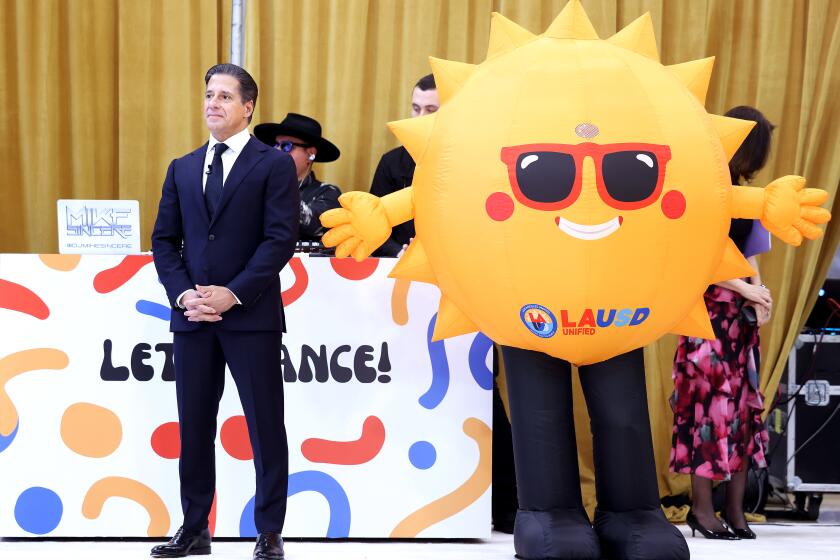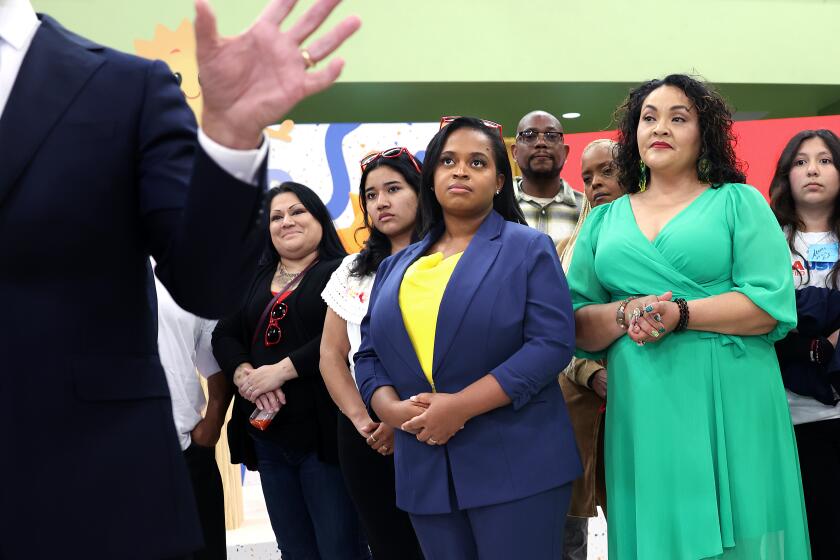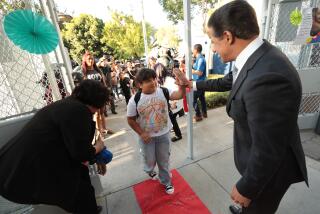LAUSD test scores rise in math and English, positive marks after pandemic setbacks
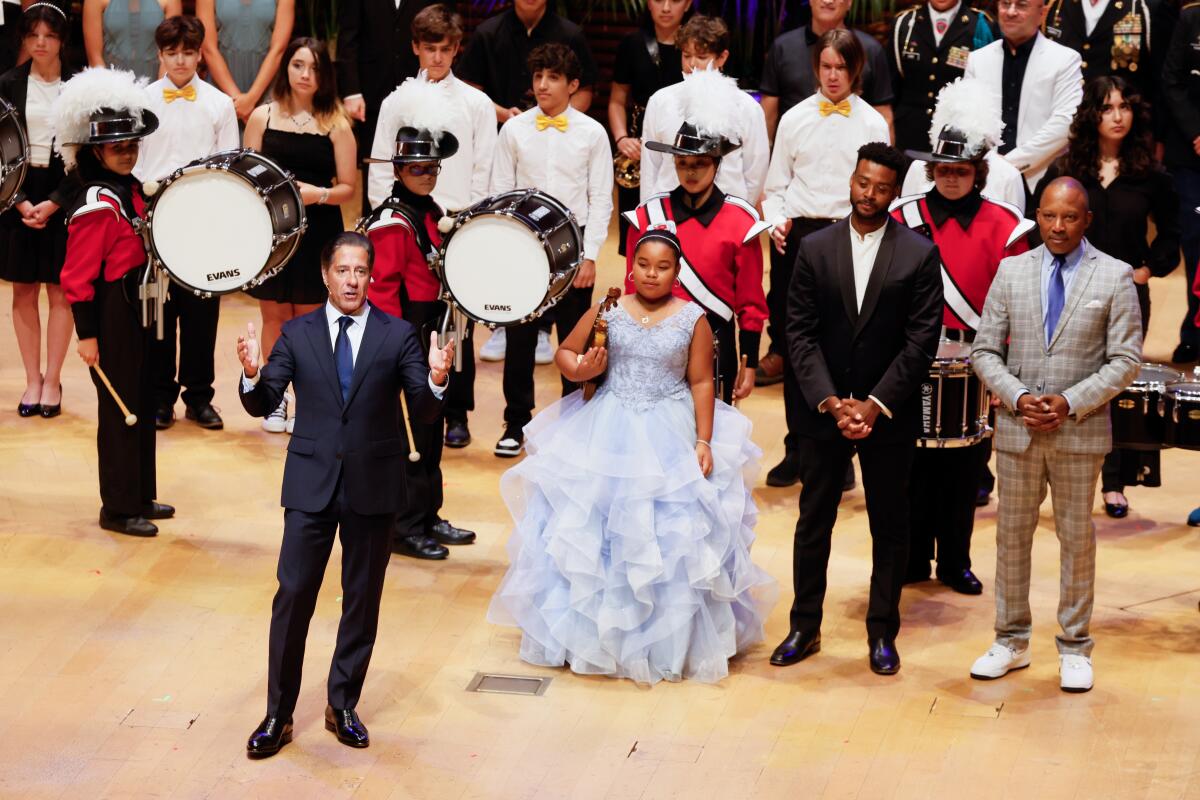
- Share via
In a step forward from pandemic-era learning setbacks, standardized test scores in the Los Angeles school system showed gains in all tested grade levels in math and English, Supt. Alberto Carvalho announced on Tuesday, although a majority of students remain below the state’s grade level standards.
At this time, the L.A. results can’t be evaluated in a broader context because the California Department of Education has not publicly released statewide scores from the 2024 spring semester testing.
Yet the scores suggest Los Angeles students have begun rebounding from deep pandemic lows, when campuses were closed for more than a year and students kept pace as best they could through remote learning.
In English, districtwide proficiency increased from about 41% to 43% of students year over year, officials said. In math, scores increased to 32.8%, a 2.3-percentage-point rise. The proficiency rate measures what percentage of students have met the California learning standard expected for a certain grade or subject matter.
Only once previously have test scores improved at every grade since the current testing system began in 2015, officials said.
“Simply put, you are closing the achievement gap,” Carvalho told district employees in an address that stood out — when compared with some other speeches — for expressing gratitude and praising others. “I have never worked with talent like the talent represented here today.”
“This is quite stunning that every single demographic improved,” Carvalho said in an interview.
Proficiency rates indicate that the district still has far to go, including in catching up to pre-pandemic academic achievement levels. But Carvalho said that at some grades, in math or English, students were at or near pre-pandemic levels on test scores.
Rather than focus on proficiency, Carvalho and other district officials called attention to a meaningful but obscure measure called “distance from standard.” This measure takes in all results for all students, and on average, district students are getting closer to “standard,” that is, what students are supposed to know at a particular grade level.
California tests students in math and English in grades 3 through 8 and in grade 11.
Students also are tested in science in grades 5 and 8 and once in high school. District officials said they were not ready to release results for the science test.
LAUSD unplugged chatbot after collapse of company that created it, but Carvalho says other features remain to help students. Most schools don’t yet have it.
The first day of the new school year is Aug. 12.
This year, the annual high-profile back-to-school speech happened earlier than usual to coincide with the start of meetings and training for principals and other administrators, who attended the event along with other officials and guests.
One new initiative is a principals’ academy, which will inaugurate a two-year training regimen for aspiring administrators. The learning material will include how to understand data and use them to make positive changes. The training process also will provide mentors to principals before and after they begin to manage a school.
The gathering — held at the downtown Disney Concert Hall — has become an annual showcase and promotional opportunity for the superintendent. Carvalho embraces the element of showmanship onstage as perhaps no other superintendent before him, speaking without notes, moving easily across the stage and sprinkling in jokes with the help of timely slides.
Student musicians, dancers and singers — many in colorful costume — preceded him.
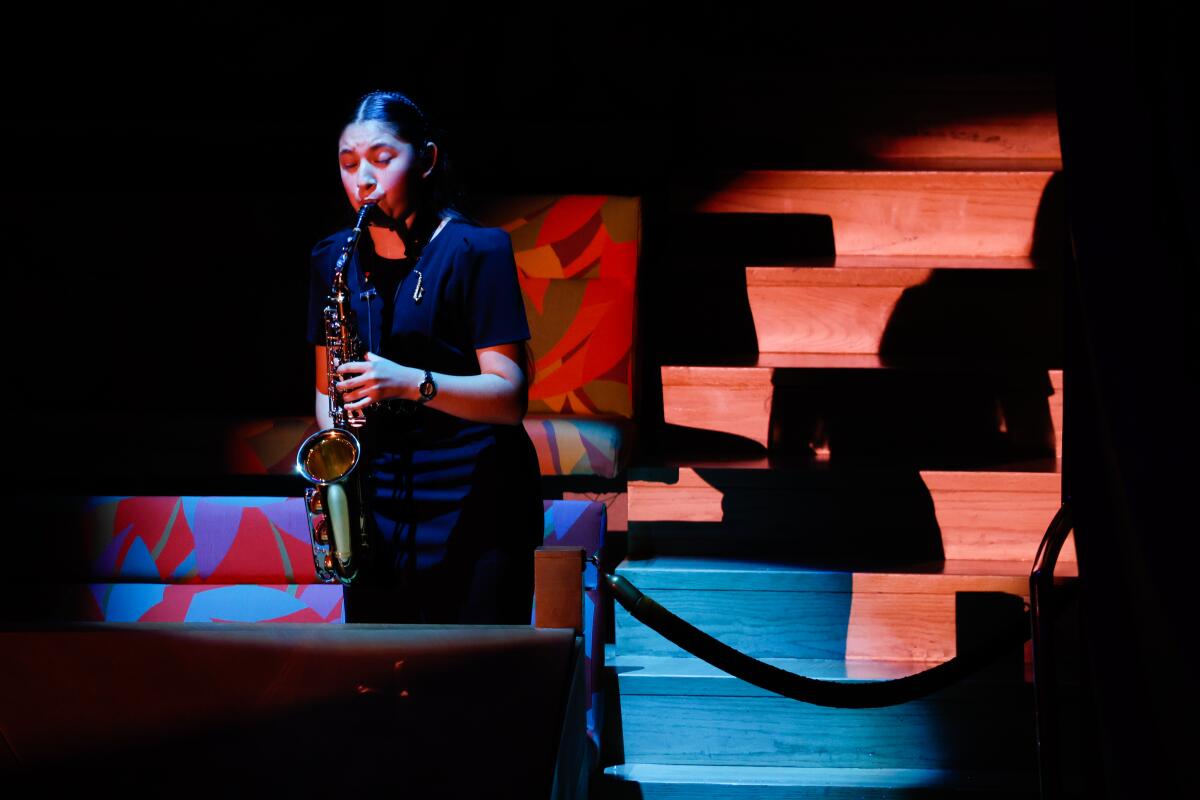
Carvalho used the opportunity to highlight various district initiatives and shining moments, including an Oscar-winning short documentary on the school system’s musical instrument repair shop. The movie is spurring a $15-million capital campaign to support the work.
Another spotlighted effort was a mobile laundry truck for families, which cleans their clothes while students are at school and parents at work. The size of the effort makes it more symbolic than sweeping, but it’s meant to send a message about the extent to which the school system is trying to help families.
One upcoming project is a mobile e-sports lab, in which learning tasks are “gamefied,” or turned into activities that are games.
The superintendent dove into a controversial arena by touting what he described as increased arts spending. Critics have accused the district of illegally diverting arts instruction money to other purposes.
The star attraction at last year’s speech, “Ed” the chatbot, was not invited to this year’s event. A year ago, Carvalho had touted Ed as an artificial-intelligence-enhanced student advisor that was to be a component of a unique individual acceleration plan for every student.
LAUSD sidelines “Ed,” an AI chatbot, after a splashy kick-off featuring a company that has now tanked. District also is dealing with another data breach.
While that’s still the plan, the full rollout of the program is on hold. And it’s hard to find students, teachers or other staff members who have used any part of the system since its official launch. It’s not available at most schools.
The much-publicized chatbot has been unplugged entirely in the wake of the apparent financial collapse of Boston-based AllHere Education, the company that provided the technology.
In an interview before the Disney event, Carvalho said he would assemble a task force of independent experts to conduct a wide-ranging review, with the goal of renewing the AI effort. One key focus will be whether the district could strengthen its bidding process and oversight to prevent a similar scenario in the future.
Carvalho said he anticipates that the task force, once assembled, will complete its work over about three months.
More to Read
Sign up for Essential California
The most important California stories and recommendations in your inbox every morning.
You may occasionally receive promotional content from the Los Angeles Times.
